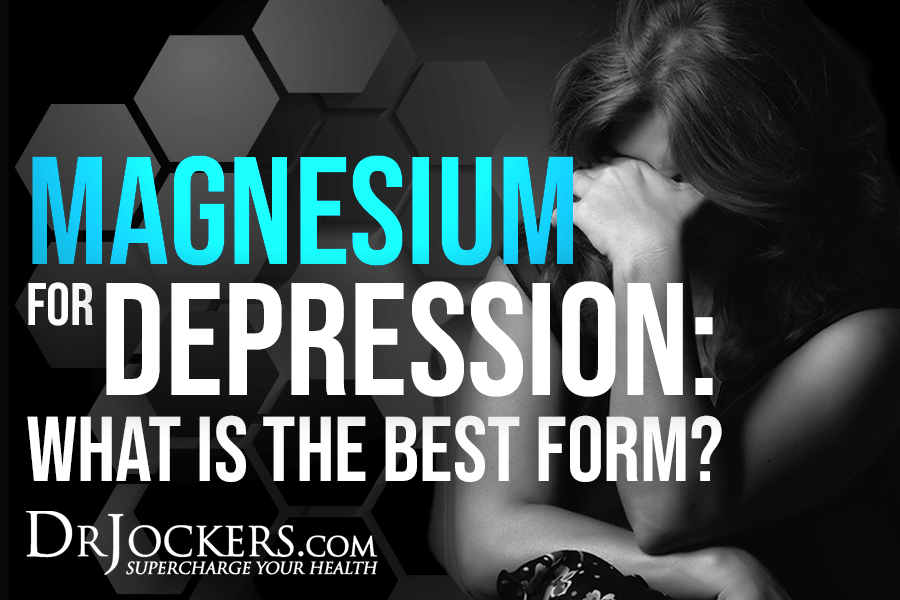 Magnesium For Depression: What is the Best Form?
Magnesium For Depression: What is the Best Form?
Depression is a common form of mood disorder characterized by low energy, a feeling of sadness, hopelessness, worthlessness, low energy, and loss of interest in activities you’ve once enjoyed. It can affect your sleep, studies, work, eating behaviors, exercise habits, social life, family life, and other daily activities.
One of the often overlooked support options for improving depression is magnesium. Magnesium is important for your brain and mental health. Magnesium deficiency has been linked to depression, anxiety, headaches, migraines, muscle pains, sleep issues, fatigue, high blood pressure, and other health issues. Magnesium supplementation may help to improve depression, mental health, and brain health.
In this article, I will discuss what depression is. I will go over the connection between magnesium and brain inflammation. I will discuss the connection between magnesium deficiency and depression. You will learn about the symptoms of magnesium deficiency beyond depression. I will go over the neurological benefits of magnesium. You will learn about some key studies on how magnesium supplementation may benefit depression. I will share the best forms of magnesium for brain health and recommend a magnesium supplement for mental and brain health and overall well-being.
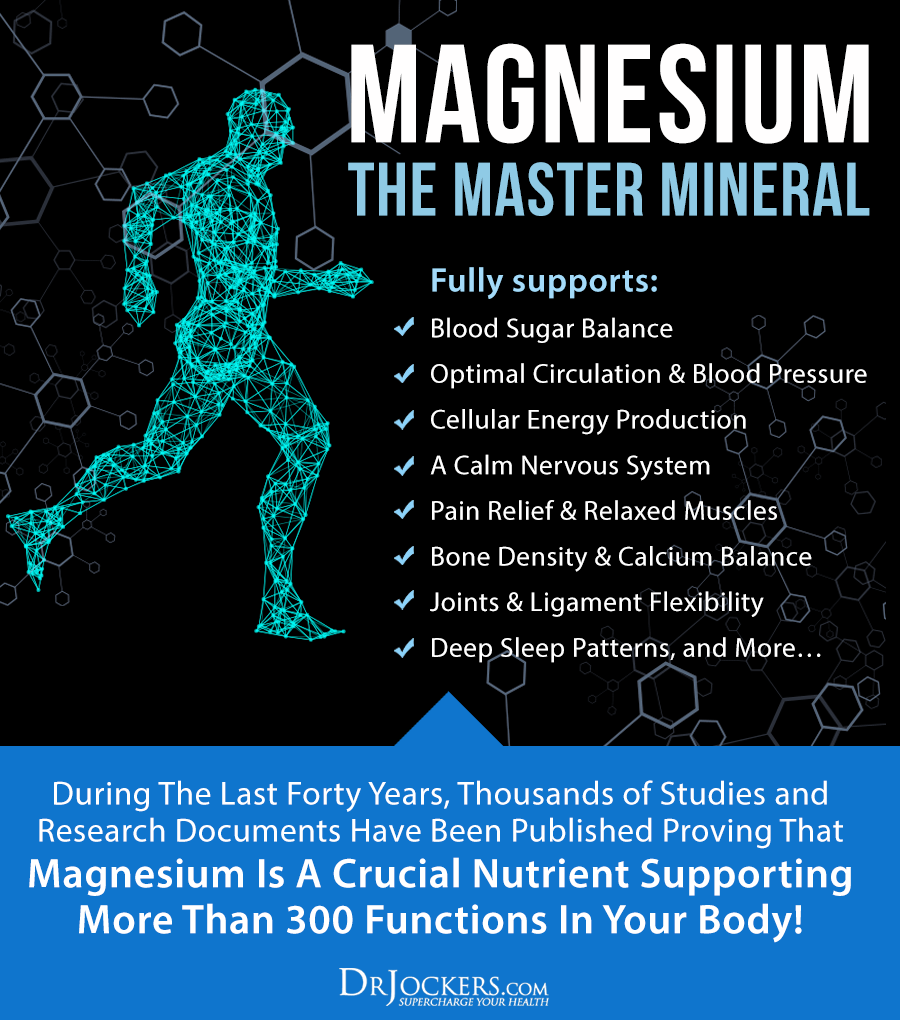
What is Depression
Depression is a common yet often serious mood disorder. Depression affects how you feel and how you think. It may affect your eating behavior, sleep, work or school work, exercise habits, family life, social life, daily activities, and other areas of your life (1).
There are different types of depression (1):
- Major depression: This is a form of depression that presents symptoms for 2 weeks or longer and interferes with your sleep, study, work, and eating.
- Dysthymia or persistent depressive disorder: This form of depression is long-term that lasts for at least two years with less severe symptoms.
- Perinatal depression: Perinatal depression can affect women during pregnancy, and postpartum happens after delivery.
- Seasonal affective disorder (SAD): SAD affects people during late fall and winter during darker months and goes away during spring and summer, the lighter months.
- Depression with symptoms of psychosis: This form of depression is severe and accompanied with symptoms of psychosis such as hallucinations (seeing or hearing things that don’t exist) or delusions (disturbing, false beliefs).
- Bipolar disorder: Bipolar disorder is a different mental health condition, however, it is also characterized by depressive episodes followed by manic periods.
According to the National Alliance on Mental Health, 1 in 5 adults experiences one form of mental illness each year (2). Depression is one of the most common mental health issues. According to the National Institute of mental health, 21 million adults in the US had at least one episode of major depression.
These statistics don’t include children or teenagers, people with other forms of depression, and undiagnosed depression (3). Depression can co-occur with other mental health issues, including anxiety, eating disorders, social anxiety, and phobias.
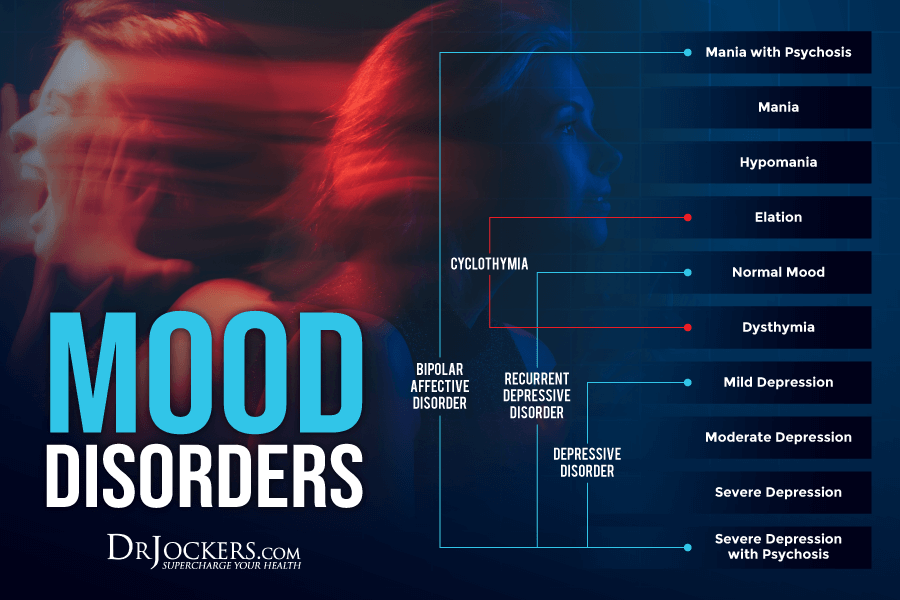
Signs and Symptoms of Depression
Signs and symptoms of depression have to occur every day for at least two weeks to receive an official diagnosis. Signs and symptoms of depression may include (1):
- Persistent feelings of sadness or emptiness
- Feelings of hopelessness
- Feelings of pessimism
- Feelings of irritability, restlessness, or frustration
- Feelings of helplessness
- Feelings of guilt
- Feelings of worthlessness
- Fatigue or low energy
- Feeling slowed down
- Sleep issues, oversleeping, or early morning awakening
- Loss of interests in hobbies or activities once enjoyed
- Trouble concentrating
- Memory issues
- Difficulty making decisions
- Changes in appetite, eating habits, or weight
- Headaches, migraines, aches, pain, or digestive issues without a known reason
- Thoughts about suicide or death or suicide attempts
Symptoms may vary from person to person and may depend on the type of depression you have. You may not experience all symptoms. Symptoms may or may not be severe. However, depression is more than just occasionally feeling down. People who may not meet the official diagnosis of depression but experience some depression-like symptoms may also benefit from looking into the root causes of the issues and taking steps to improve their mental health and prevent full-blown depression (1).

Causes and Risk Factors of Depression
Depression may develop at any age. There is no one specific cause of depression. It’s usually a combination of a number of factors, including genetic, biological, psychological, and environmental factors. A personal or family history of depression, chronic stress, major life changes, trauma, physical illness, other mental health issues, and certain medications may all increase your risk of depression (1).
Brain inflammation and certain nutritional deficiencies may play a role in depression. In the next section, I will discuss the role of brain inflammation in depression and how improving magnesium levels may help.
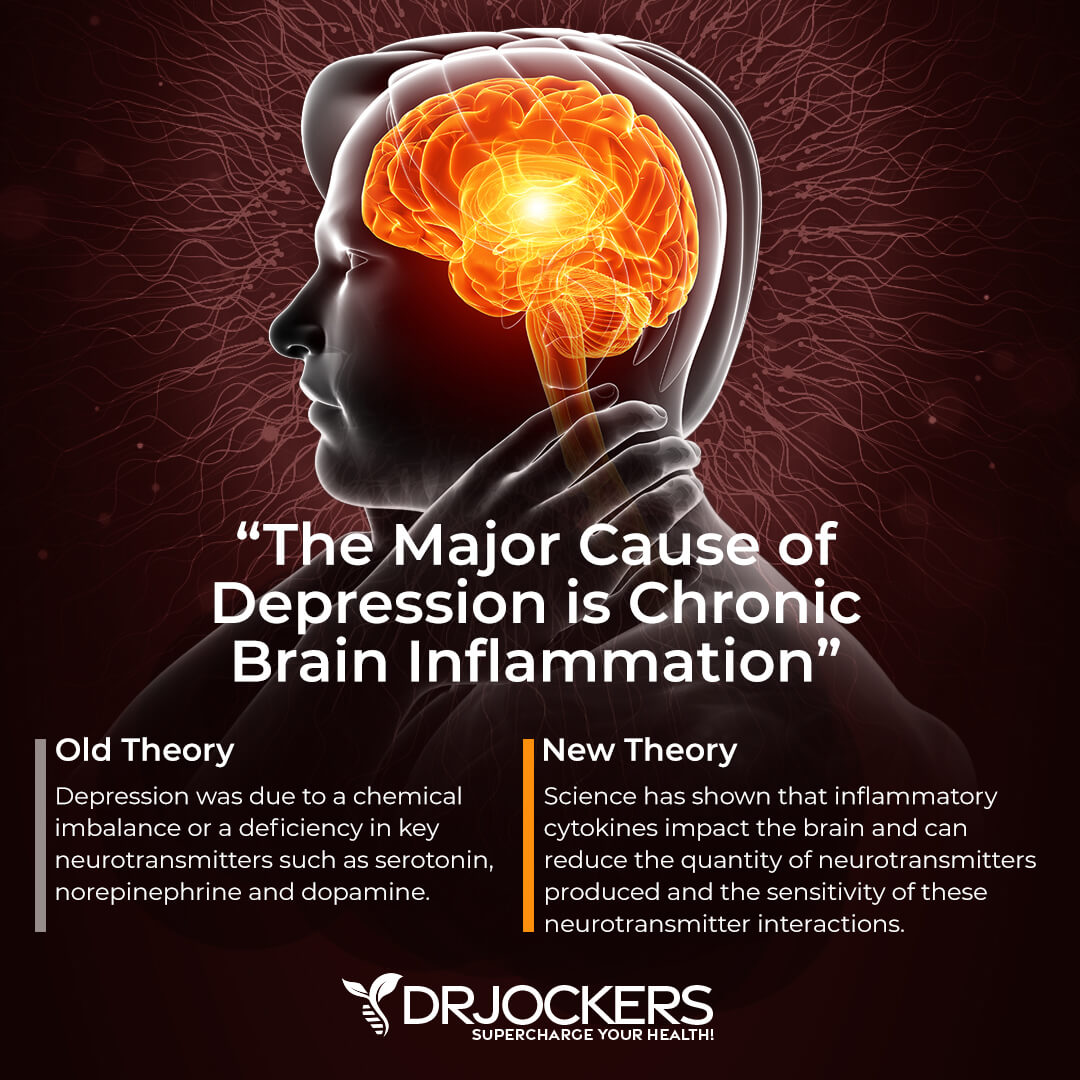
Conventional Treatment for Depression
Conventional treatment for depression is usually treated with therapy, medication, or a combination of both (1). Unfortunately, many people do not have a good experience with anti-depressants and these medications have many side effects as well as addictive properties that create a dependency.
The role of nutrition is rarely explored in a conventional setting. Yet, mental health and nutrition are connected. Today, I will explore how magnesium may help with brain inflammation and depression.
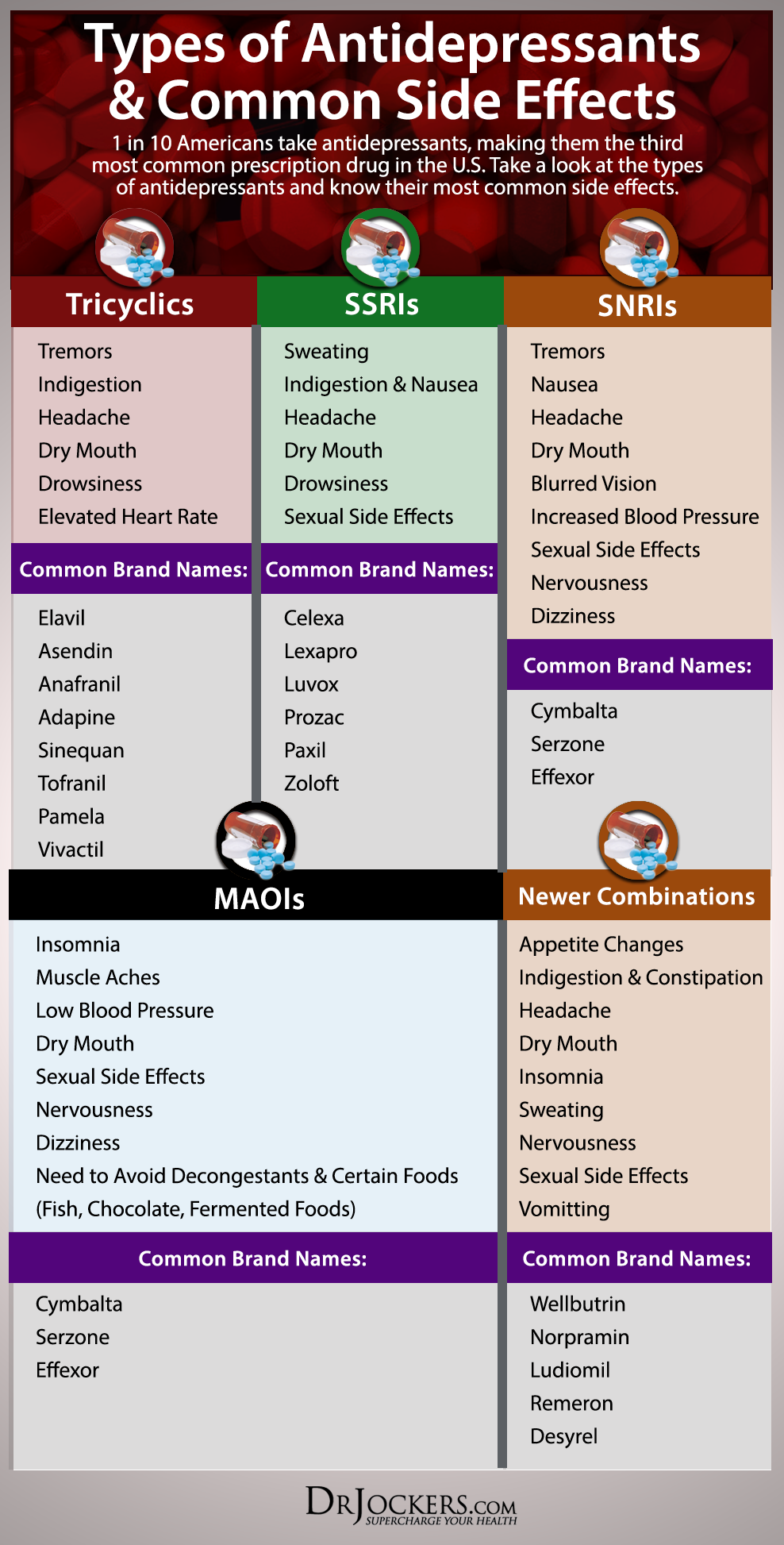
Depression and Brain Inflammation
When we talk about depression, we need to discuss brain inflammation, one of the major root causes and characteristics of depression. Brain inflammation is a serious problem that affects a big portion of the population. It is chronic inflammation that affects your brain.
Inflammation is your body’s defense mechanism. Your body creates inflammation to protect you against infections, toxins, injuries, and other harm. However, inflammation becomes a problem when it becomes chronic. Systemic infections, an inflammatory diet, poor lifestyle choices, chronic stress, and environmental toxicity can create chronic inflammation.
Cytokines are one of your body’s major inflammatory mediators. They are cell signaling molecules that help cell-to-cell communication in immune responses and stimulate inflammation. A 2017 study published in Biomedical Reports and a 2019 study published in Frontiers in Immunology have found increased levels of inflammatory cytokines in the neurological tissue of people with depression and fatigue (4, 5).
A 2014 study published in Neuroscience has found that people with depression without treatment had much higher levels of plasma inflammatory cytokines than those after 12 weeks of treatment for depression (6). A 2002 review published in International Immunopharmacology and a 2012 review published in Current Pharmaceutical Design has found that certain cytokines signal the brain to make neuroimmune, neurochemical, neuroendocrine, and behavioral changes, and cytokine imbalance in your central nervous system (CNS) may play a role in depression (7, 8).
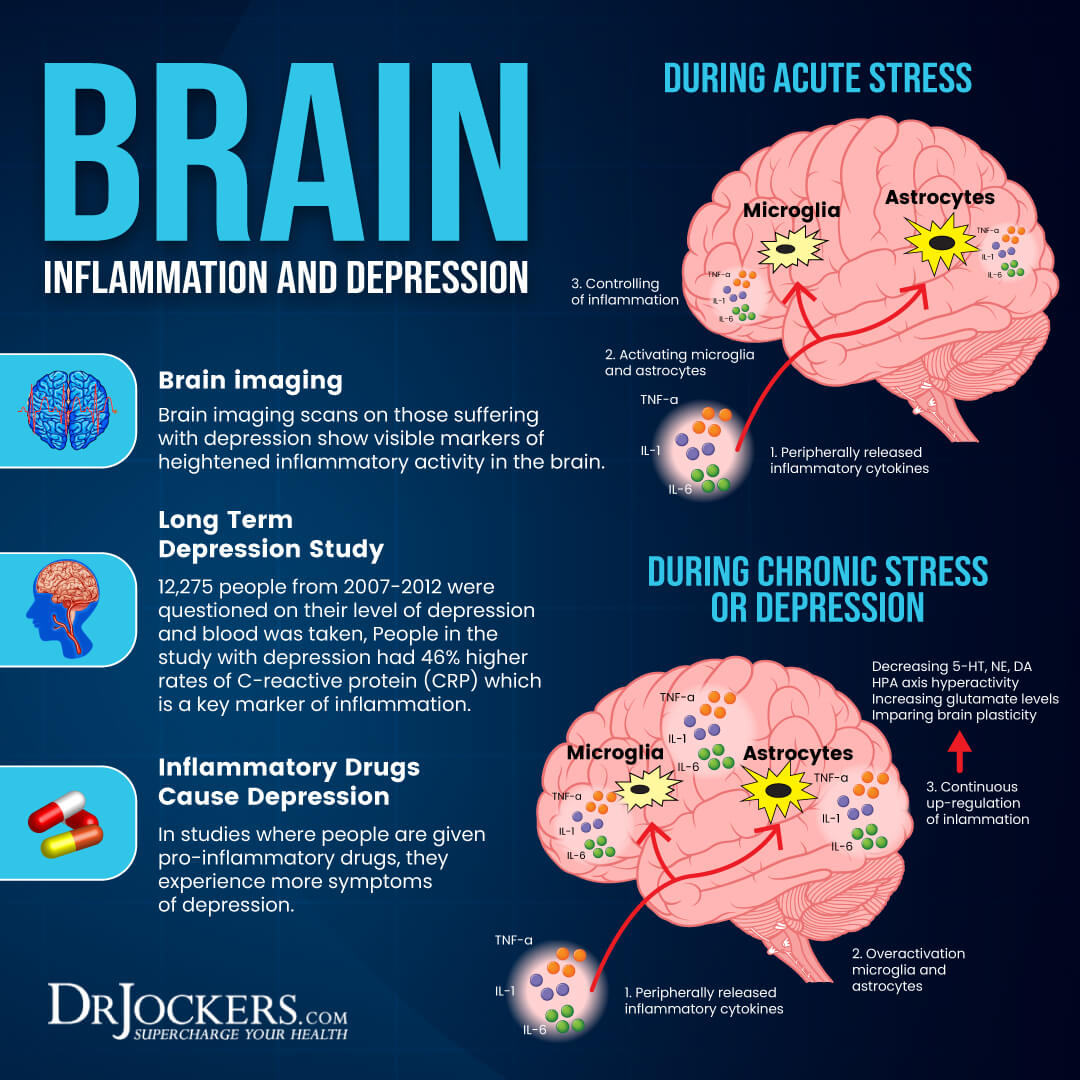
Brain Changes Involved in Depression
Furthermore, poor glutathione, high glutamate/GABA ratio, low BDNF, less NMDA receptor binding, and loss of neuroplasticity may also play a role in brain inflammation and depression. A 2015 study published in BMC Medicine has found that mitochondrial dysfunction can lead to chronic inflammation and low glutathione levels, which may increase the risk of depression and mental health issues (9).
GABA (γ-Aminobutyric acid) is the chief inhibitory neurotransmitter essential for your mental and brain health. Poor gut health and other imbalances can increase the risk of a decrease in GABA levels. A 2011 study published in Molecular Psychiatry has found a link between low GABA levels and major depressive disorder (10).
Glutamate is another neurotransmitter critical for brain and mental health. A 2021 study published in the World Journal of Psychiatry has found a link between glutamate levels and depression (11). According to a 2021 study published in Frontiers in Psychiatry, glutamate and GABA homeostasis is essential for mental health (12). A high glutamate/GABA ratio may be linked to depression.
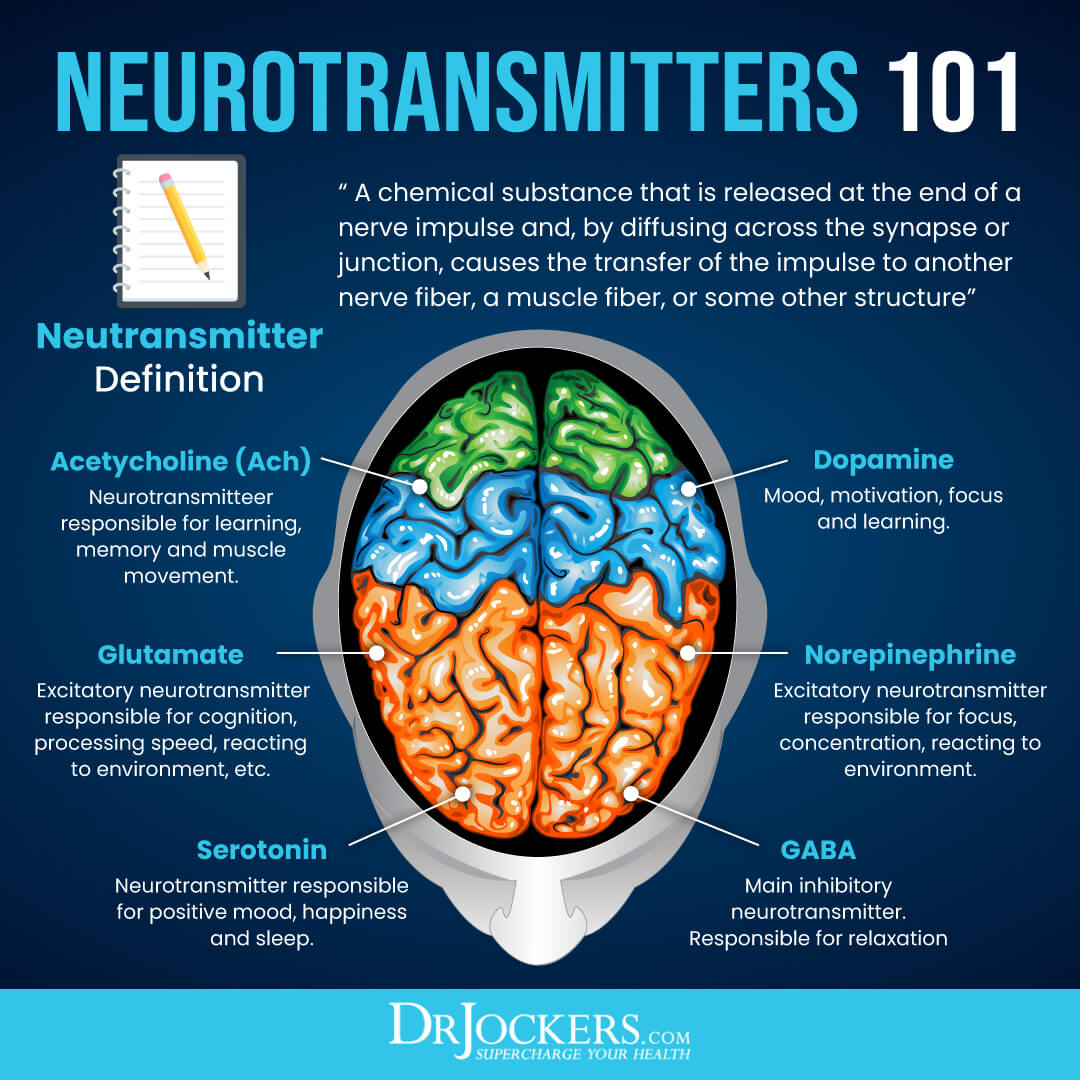
N-methyl-D-aspartate (NMDA) is a glutamate receptor that plays a role in learning, memory, brain, and mental health. According to a 2020 study published in Biomolecules, less NMDA receptor binding may play a role in depression and schizophrenia (13).
Brain-derived neurotrophic factor (BDNF) is a key molecule for learning, memory, brain, and mental health. It plays a role in the plastic changes in your brain that affects these functions. According to a 2009 study published in Neuropsychiatric Treatment and Disease, low BDNF may be linked to the risk of depression and suicide (14).
According to a 2019 study published in the Journal of Psychiatry and Neurosciences, antidepressants affecting neuroplasticity may help depression (15). A 2021 study published in Experimental and Therapeutic Medicine has found that therapies that focus on neuroplasticity or the rewiring of the brain may help to improve depression (16). They found that improving the NMDA receptor may play a role in this process.
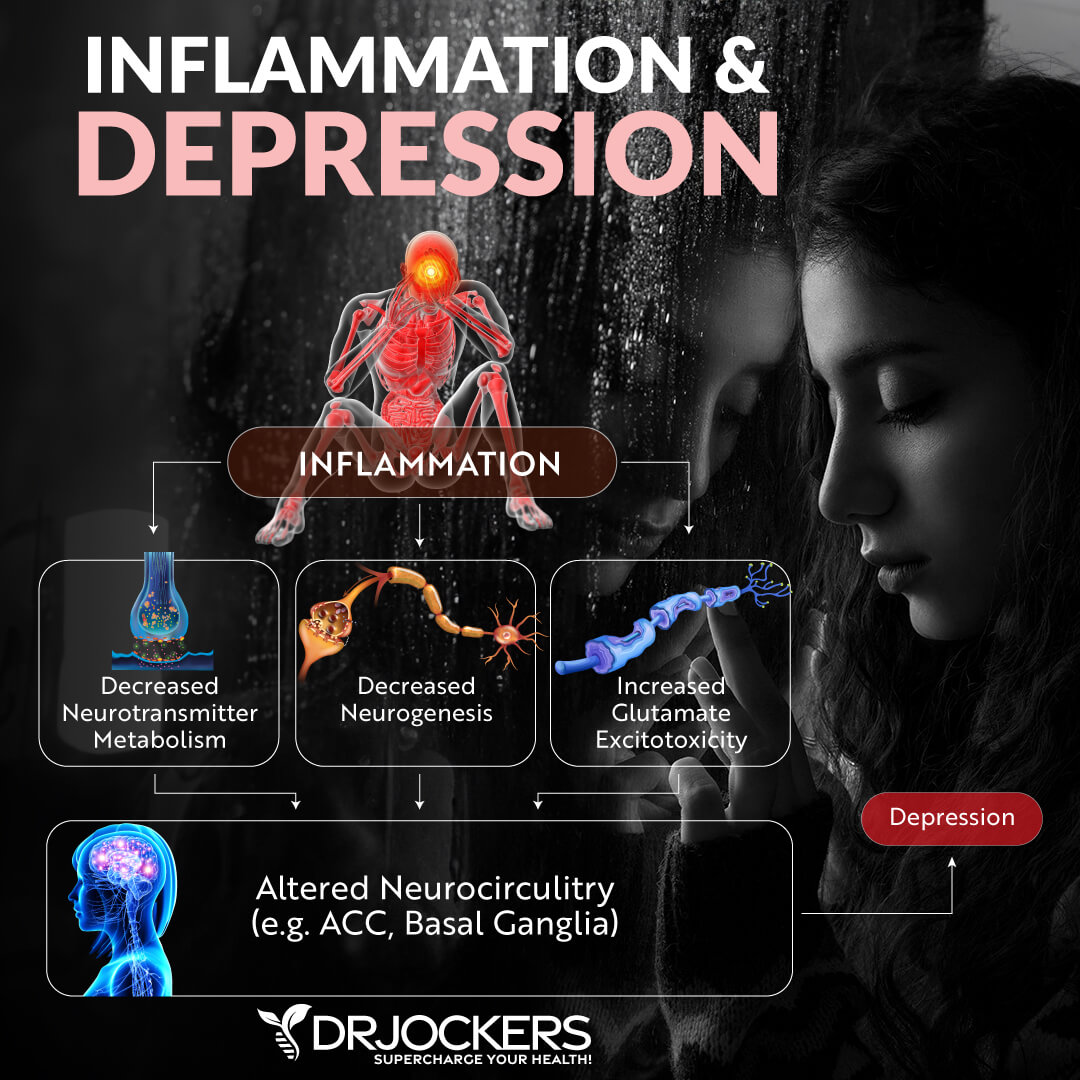
Magnesium Deficiency and Depression
Magnesium is an essential mineral that’s involved with countless biochemical reactions and health processes in your body. Magnesium is essential for brain health, mental health, muscle health, healthy blood sugar levels, relaxation, sleep, heart health, and exercise performance. It may help with depression, anxiety, migraines, muscle tension, and sleep. Research has found that magnesium deficiency may play a role in depression and supplementation may help.
A 2010 review published in Medical Hypotheses has found that poor magnesium may reduce serotonin and magnesium may help to improve serotonin levels and symptoms of treatment-resistant depression (17). A 2011 book, Magnesium and Major Depression, published by the University of Adelaide Press has also discussed how magnesium deficiency may lower serotonin and contribute to depression (18).
Findings of a 2013 systematic review published in Nutritional Neurosciences has also found that magnesium metabolism and poor magnesium may contribute to depression (19). Improving magnesium levels may help.
Additional Symptoms of Magnesium Deficiency
Besides depression, symptoms of magnesium deficiency may include:
- Muscle pain and muscle spasms
- Fatigue
- Weakness
- Sleepiness
- Poor sleep
- Abnormal heart rhythms
- High blood pressure
- Migraines and headaches
- Loss of appetite
- Nausea or vomiting
- Shaking
- Pins and needles feeling
- Twitches and tremors
- Hyperexcitability
- Anxiety
- Osteoporosis or weak bones
- Asthma
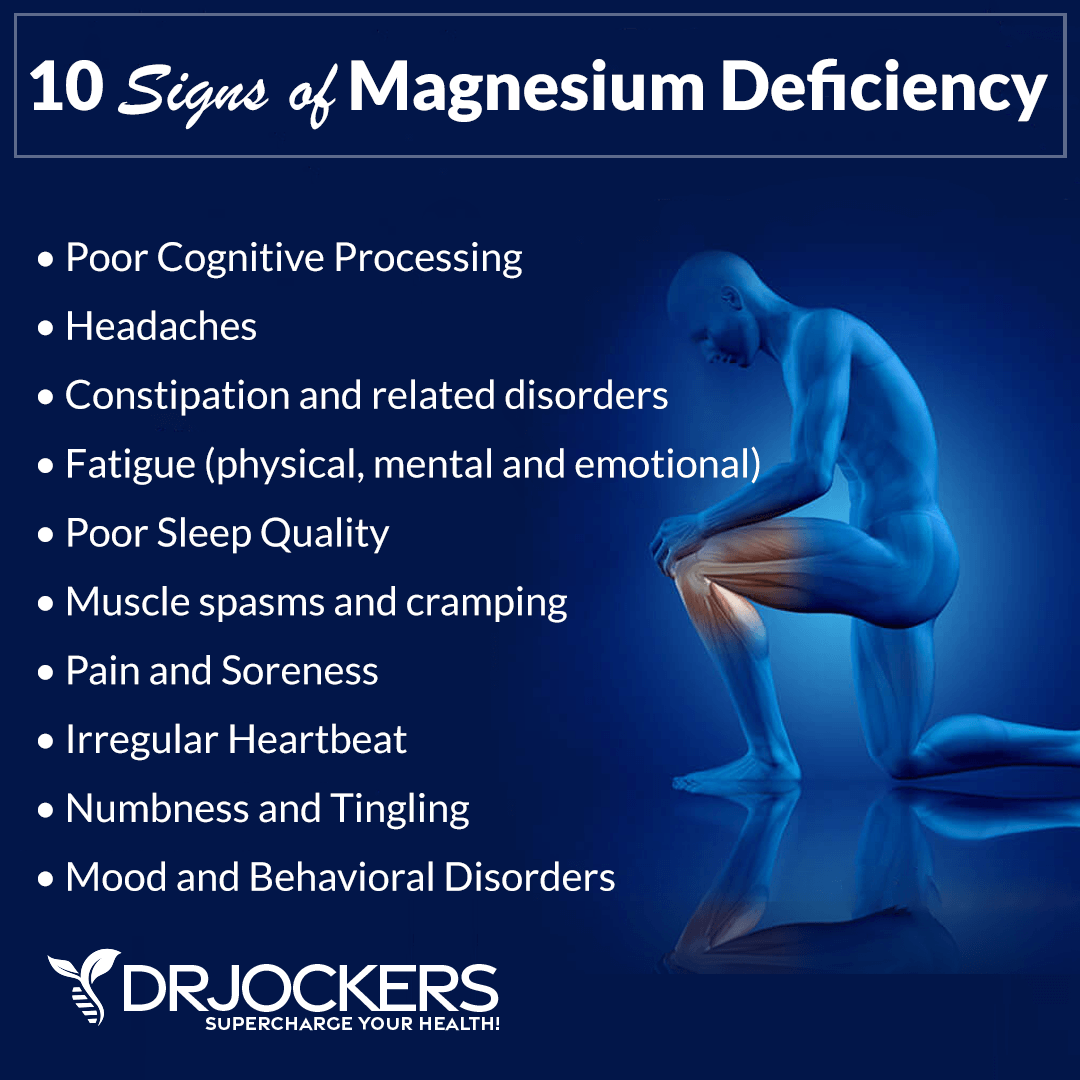
Neurological Benefits of Magnesium
Magnesium has multiple neurological benefits. Magnesium may reduce brain inflammation, decrease the stress response, improve BDNF levels, improve neuroplasticity, support NMDA receptor binding, reduce glutamate neuroexcitation, improve GABA activity, and improve neuronal nitric oxide levels. As you’ve just learned, these aspects of brain inflammation and brain health all play a role in depression. Let’s talk about these benefits in more detail.
Reduces Brain Inflammation
One of the main benefits of magnesium is reducing brain inflammation. A 2011 study published in Brain Research has found that magnesium Mg2+) ions may help to reduce excess calcium (Ca2+) ions and consequent neurotoxicity and neuroinflammation (20). By reducing brain inflammation, magnesium may help to reduce the risk of neurodegenerative diseases, such as Alzheimer’s and Parkinson’s disease, according to the study.
A 2012 study published in the Journal of Immunology has found that magnesium may reduce neuroprotective during pregnancy (21). Researchers found that magnesium may reduce inflammatory cytokine production, reduce the risk of inflammation during the neonatal period, and decrease poor neurological outcomes.
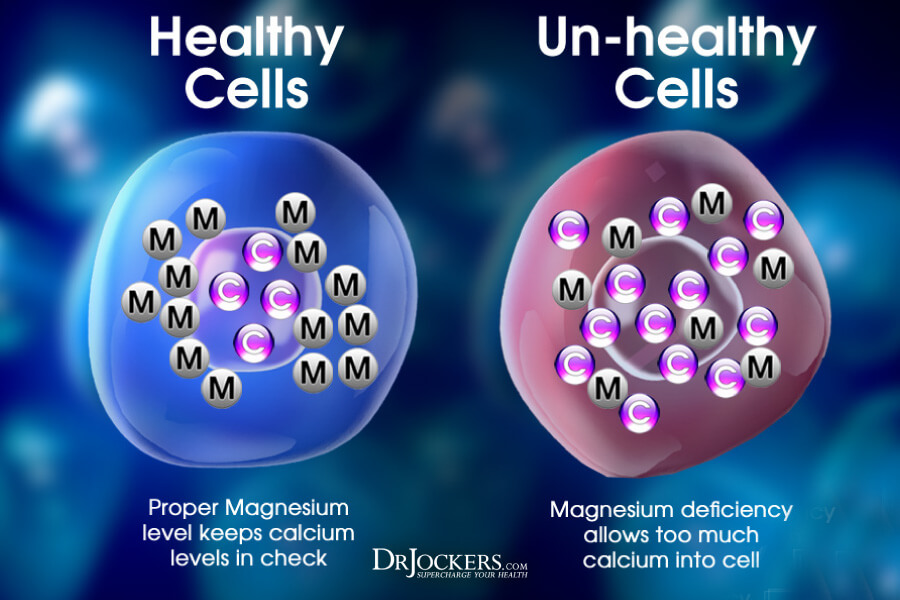
Reduces Stress Response
Chronic stress and increased stress response may also contribute to the risk of depression. Magnesium may help with that. A 2016 study published in MMW Fortschritte der Medizine has found that magnesium may help with stress and mental pressure (22). Researchers looked at the effects of 400 mg magnesium a day for 90 days on 100 participants. They found better vagus nerve activity, reduced stress, and a more balanced nervous system by the end of the study.
A 2020 study published in Nutrients has also found a connection between magnesium levels and stress (23). They found that magnesium plays a critical role in the stress response, and magnesium deficiency may increase the susceptibility of stress.
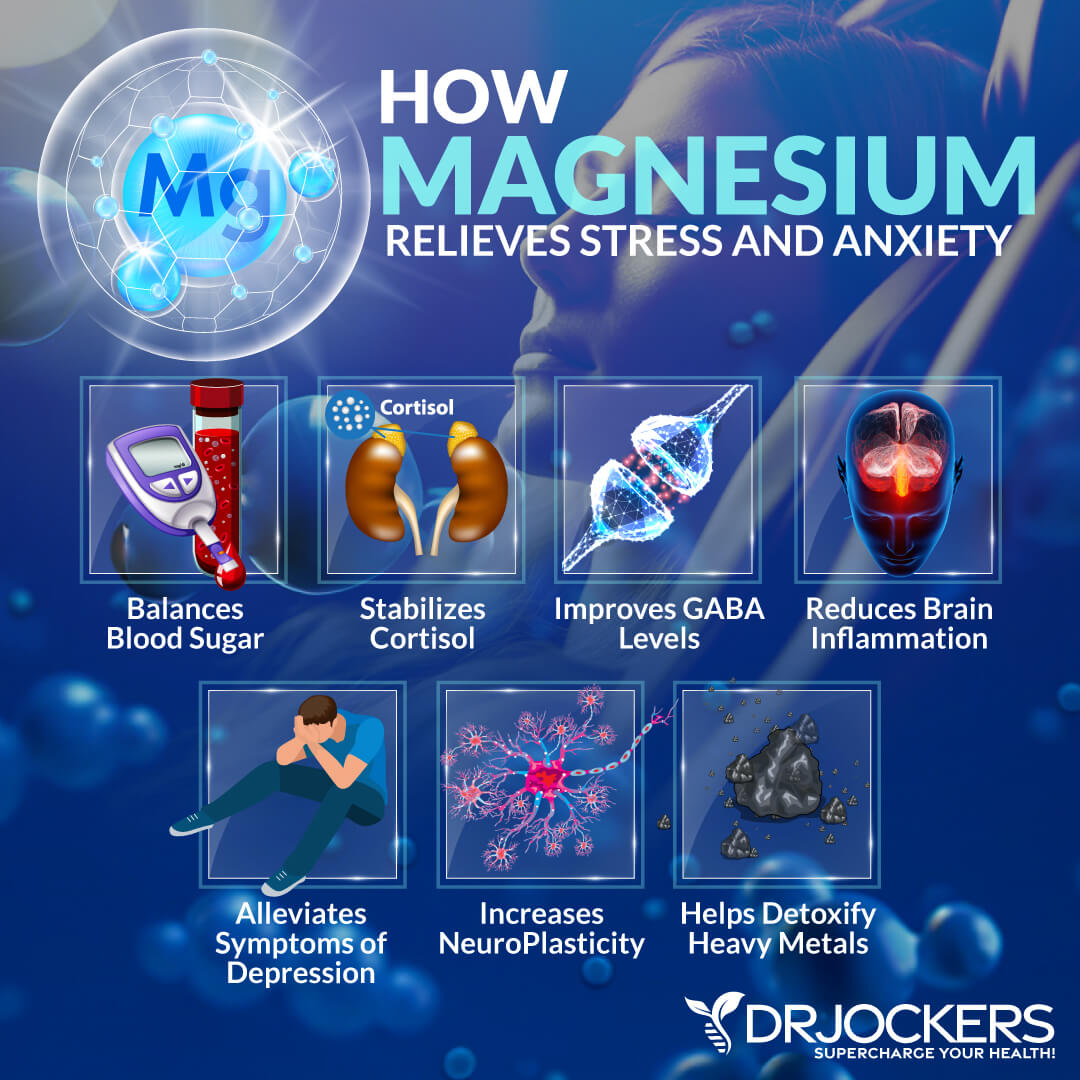
Improves BDNF Levels
As I’ve discussed earlier, improving BDNF levels may help to reduce symptoms of depression. Magnesium may help with that too. A 2015 study published in Psychopharmacology (Berlin) has found that magnesium may offer antidepressant-like activity and improve the AMPA/BDNF pathway (24).
A 2021 study published in Clinical Nutrition ESPEN has found that magnesium supplementation may help to improve BDNF levels in people with depression (25). The study looked at the effects of 500 mg of magnesium for 8 weeks in 46 participants with depression and a control group.
By improving serum levels of BDNF, magnesium may help to improve symptoms of depression. Participants scored higher on the Beck’s Depression Inventory assessment.
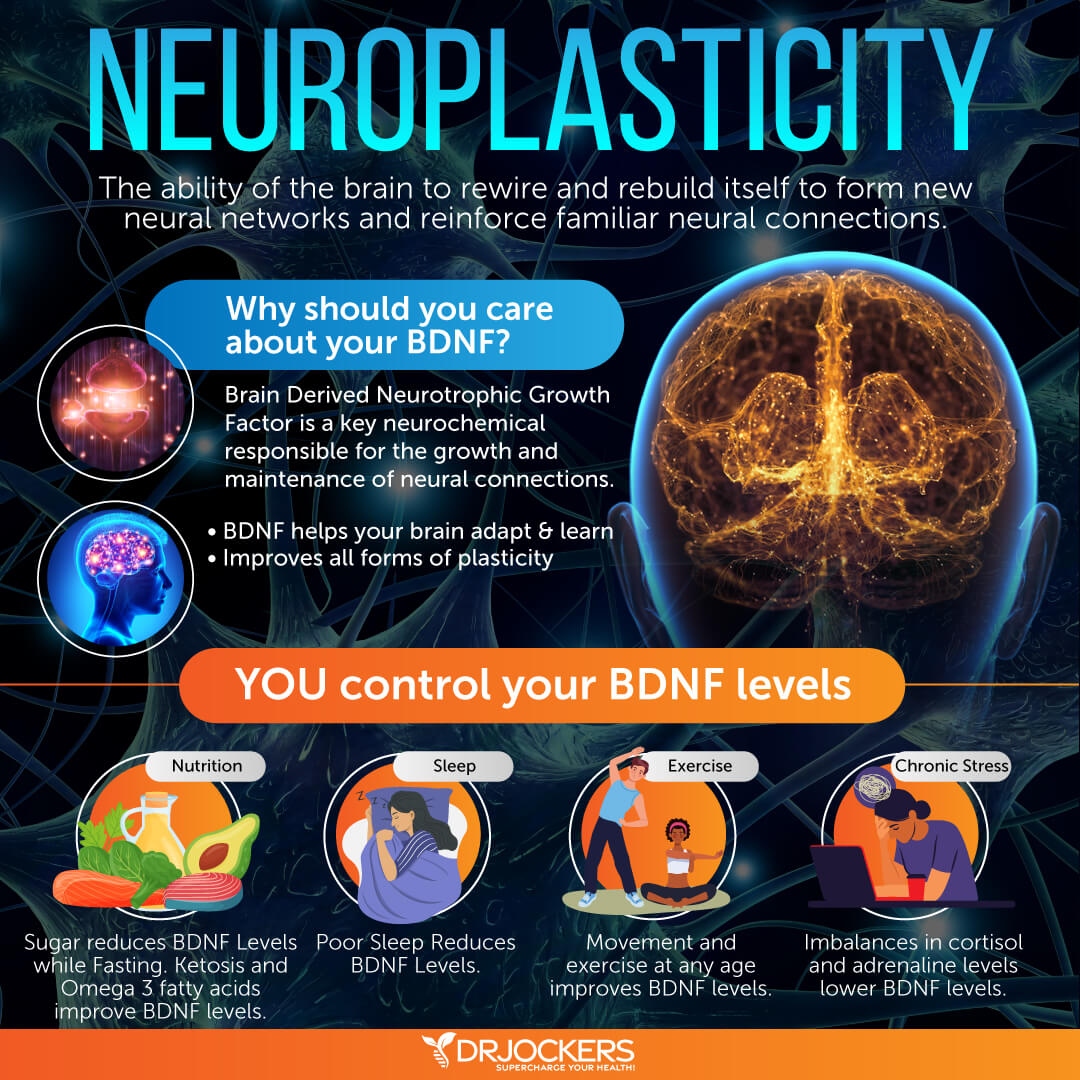
Improves Neuroplasticity
Neuroplasticity means that your brain has the ability to reorganize synaptic connections and form new synaptic connections, especially in response to learning, new experiences, or injuries. Through neuroplasticity, your brain can essentially learn new ways and unlearn depressed thoughts and behaviors. Improving neuroplasticity may help to reduce depression. Improving your magnesium levels may help to improve neuroplasticity.
A 2010 study published in Neuron has found that magnesium may help to improve learning and memory (26). This can improve synaptic plasticity, neuroplasticity, short- and long-term memory, working memory, and learning. A 2019 review published in the International Journal of Molecular Sciences has found that magnesium plays a role in neuronal maturation and neuropathology (27).
Magnesium supports energy maturation, cellular growth, proliferation, differential, and cell death. Optimal magnesium levels are essential for health development and normal bodily functions. According to the review, magnesium deficiency may be linked to neurodegenerative diseases, diabetes, cancer, and other health issues. Magnesium supplementation may have neurotrophic effects that may offer therapeutic benefits for neuronal diseases and nervous system problems.
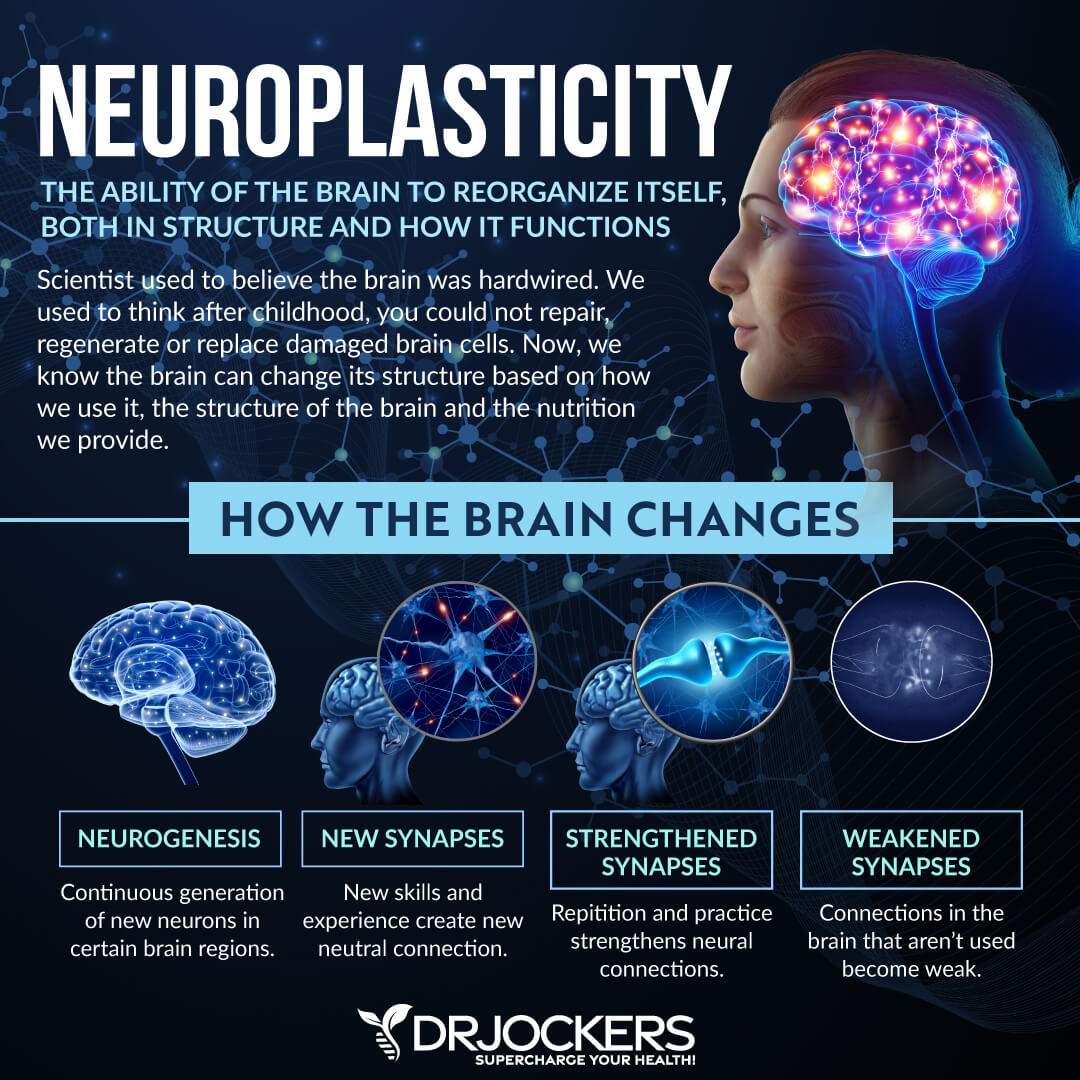
Supports NMDA Receptor Binding
NMDA receptor binding may also play a role in depression. A 2014 study published in the International Journal of Neuropsychopharmacology has found that magnesium may support NMDA receptor binding (28).
Researchers found that since the glutamatergic system plays a role in pathophysiology and depression, targeting the NMDA receptor may be a potential option for treatment. This animal study has found that magnesium treatment may help to reduce mild stress in depression and offered antidepressant benefits by affecting the NMDA receptors.
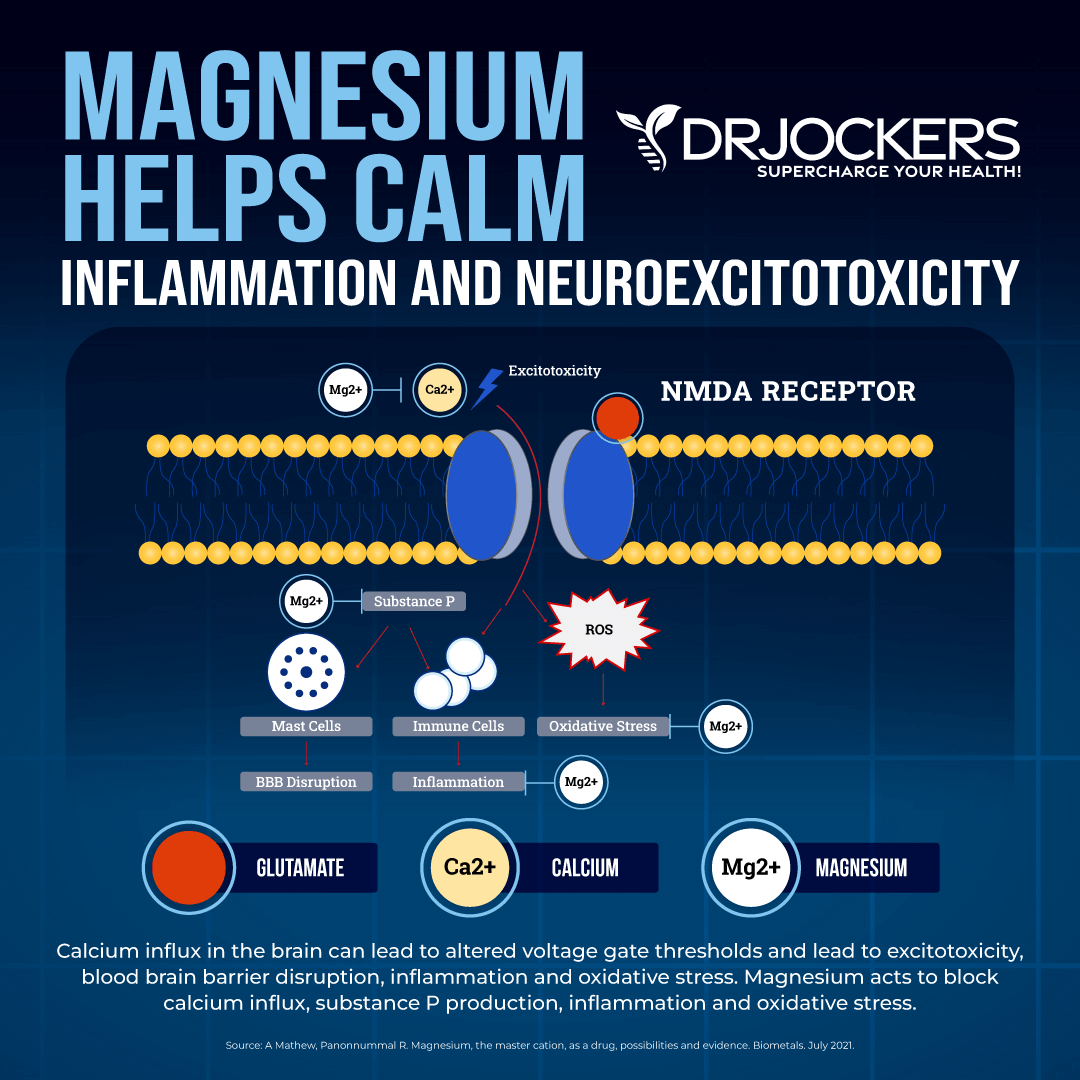
Reduces Glutamate Neuroexcitation and Improves GABA Activity
Magnesium may also help to reduce glutamate neuroexcitation and improve GABA activity. According to a 2001 study published in Neuroreport, magnesium may help to support GABA receptors and GABA activity (29).
A 2011 book, Magnesium in the Central Nervous System, published by the University of Adelaide Press has found that magnesium may reduce anxiety, panic, phobias, sleep disorders, attention deficit, and depression (30). Researchers found that magnesium may reduce presynaptic glutamate release, support NMDA receptor activity, and simulate glutamate and GABA release, which may help to support neuropsychological activities. People without these mental health issues tend to score higher on magnesium levels.
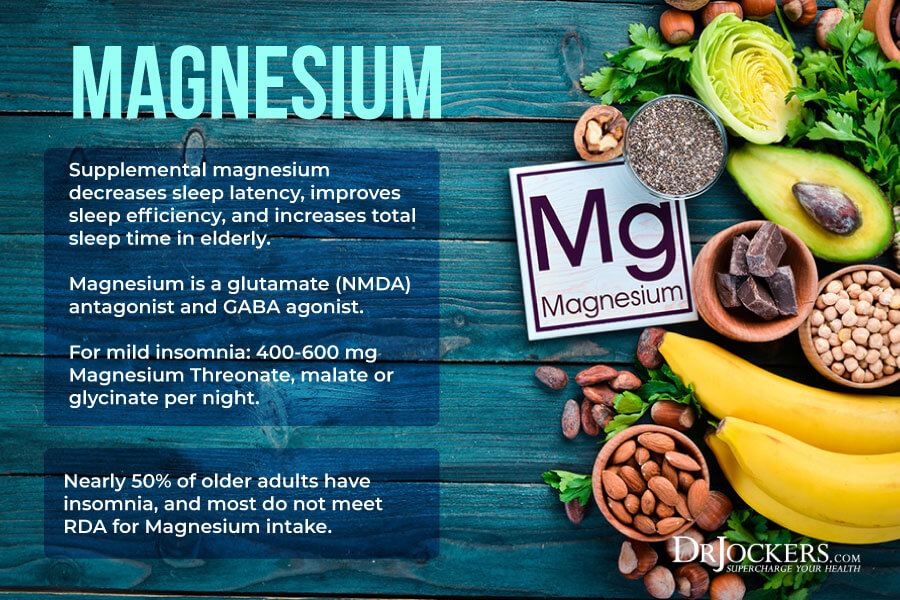
Improve Neuronal Nitric Oxide Levels
Magnesium may also help to improve neuronal nitric toxic levels which may help patients with depression. A 2006 study published in Medical Hypothesis has found that magnesium treatment may support rapid recovery from major depression (31).
They found that magnesium treatment may help to improve intraneuronal magnesium deficits that may develop due to too much dietary calcium, dietary deficiencies in magnesium, and high levels of stress hormones. They found that 125 to 300 mg of magnesium can lead to improvements in major depression within 7 days. They found that magnesium may also help with headaches, anxiety, insomnia, postpartrum depression, suicidal ideation, brain injury, tobacco use, alcohol use, short-term memory loss, and short-term IQ loss.
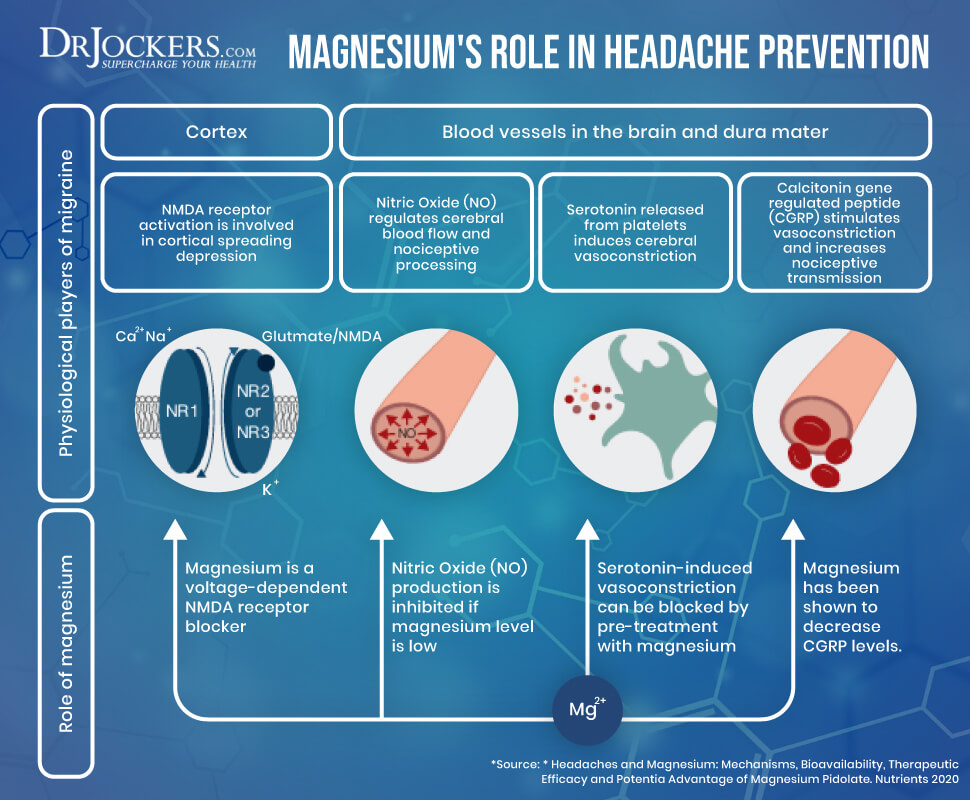
Studies on Magnesium Supplementation and Depression
Research has shown that magnesium supplementation may benefit depression. This is probably not surprising considering the brain health benefits of magnesium we just discussed. A 2017 randomized clinical trial published in PLoS One has found that magnesium supplementation may help depression (32). The study looked at 126 adults at the mean age of 52, 38 percent male.
They received 6 weeks of treatment with 248 mg of elemental magnesium while the control group received no treatment. Researchers assessed the depression symptoms and treatment of participants bi-weekly. Researchers found that after the 6 weeks, 112 participants improved their scores on depression and generalized anxiety disorder. 61 percent of participants felt confident that they would use magnesium for their depression again. You can view the charts below put together by Grassroots Health.
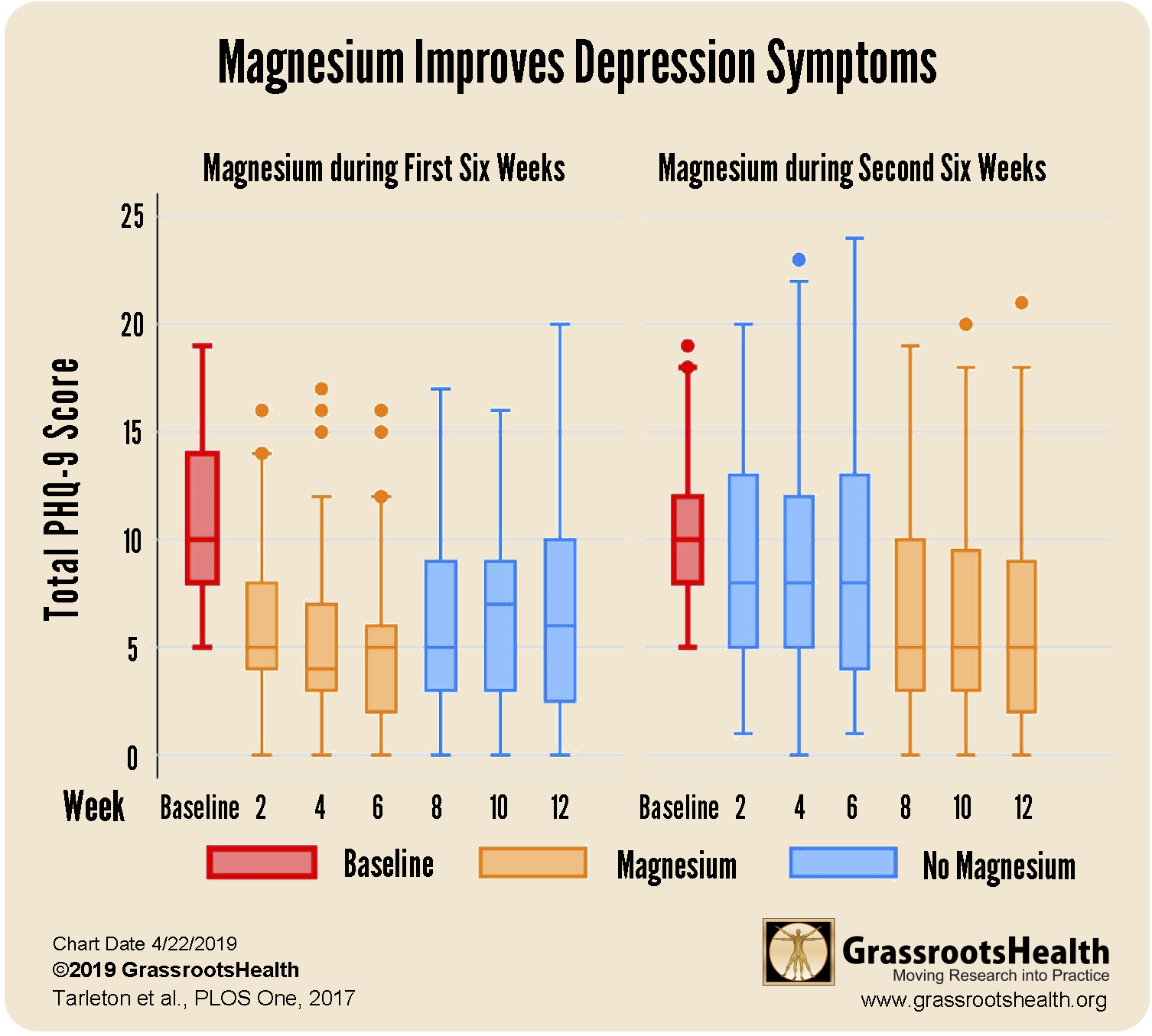
A 2020 systematic review published in Nutrients has also found that the use of magnesium may be beneficial for mental health (33). Magnesium levels are generally lower in people with mental health issues, especially depression. This systematic review looked at 32 scientific articles on magnesium and psychiatric disorders between 2010 and 2020.
They found that 12 studies show a correlation between magnesium levels and depression. Some studies have found a link between low magnesium and ADHD and autism spectrum disorder (ASD) as well. Researchers found that taking magnesium may be beneficial for people with depression and urge more research on the topic.
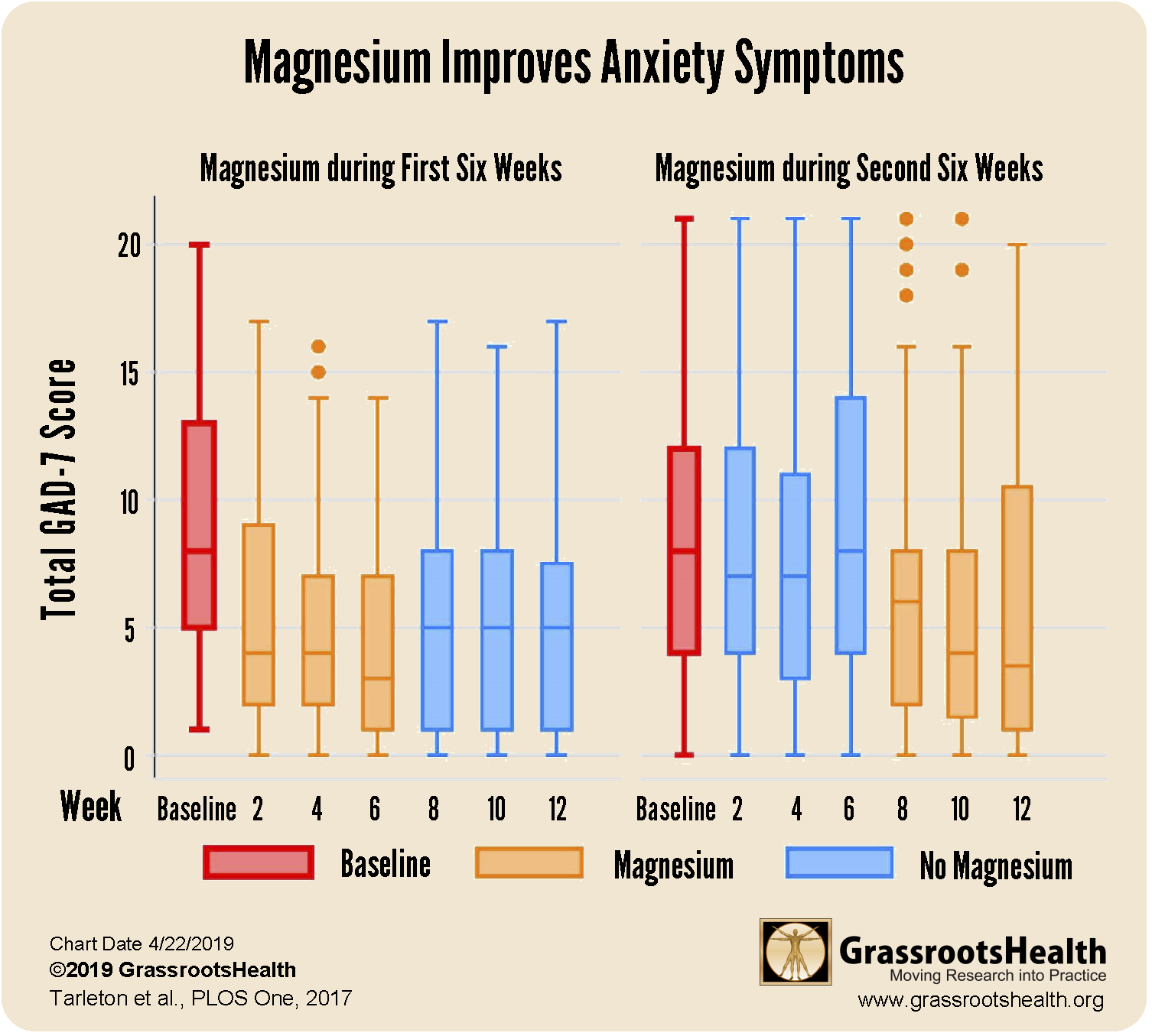
Best Magnesium Forms For Brain
Not all magnesium is made equal. Different forms of magnesium have different benefits, some are better for mental health or sleep, others may have digestive benefits. Some are not bioavailable to your body and are effective in most cases.
I’ve discussed the benefits of different forms of magnesium in this article. Here are the best forms of magnesium for your brain, mental health, and depression.
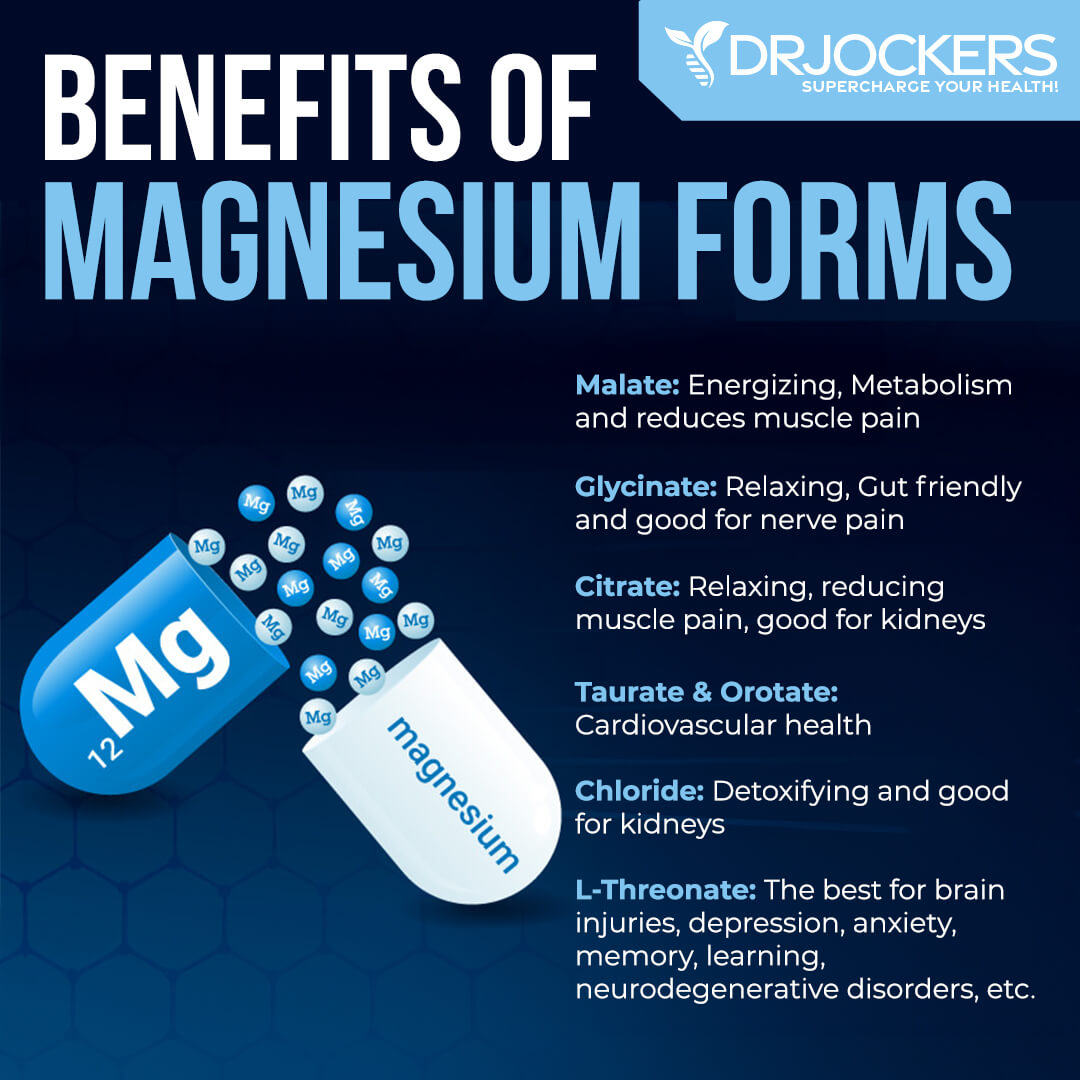
Magnesium Malate
Magnesium malate is a form of magnesium bonded to malic acid. Magnesium malate naturally occurs in many foods, especially in fruits. Malic acid is a key component of the Krebs Cycle, which is the biological process responsible for making ATP energy.
Thus magnesium malate is a great option for improving energy-related disorders, including depression and chronic fatigue syndrome. According to a 2011 study published in Orvosi Hetilap, magnesium malate may help to support a healthy magnesium-calcium balance (34).
Magnesium Glycinate
Magnesium glycinate or chelated magnesium is made up of magnesium and amino acid glycine. According to a 2017 review published in Nutrients, magnesium glycinate is one of the most bioavailable forms of magnesium (35).
Magnesium is a gut-friendly magnesium that’s also great for digestive issues It is the most commonly recommended option for hypomagnesemia or clinically diagnosed magnesium deficiency.
Magnesium L-Threonate
Magnesium L-threonate (MgT) is a newer form of magnesium that’s commonly used for brain and mental health including depression, anxiety, brain fog, cognitive performance, learning, and memory. According to a 2014 study published in Molecular Brain, magnesium threonate may offer neuroprotective and cognitive-boosting benefits that may be protective against Alzheimer’s disease (36).
A 2011 study published in the Journal of Neurosciences has found that magnesium L-threonate may help to support NMDA receptors (NMDARs) signaling, BDNF expression, and synaptic plasticity (37). A 2019 comparative study published in the Pakistani Journal of Pharmaceutical Sciences has found that magnesium L-threonate supplementation may help to improve oxidative stress and neurobehavioral activities (38).
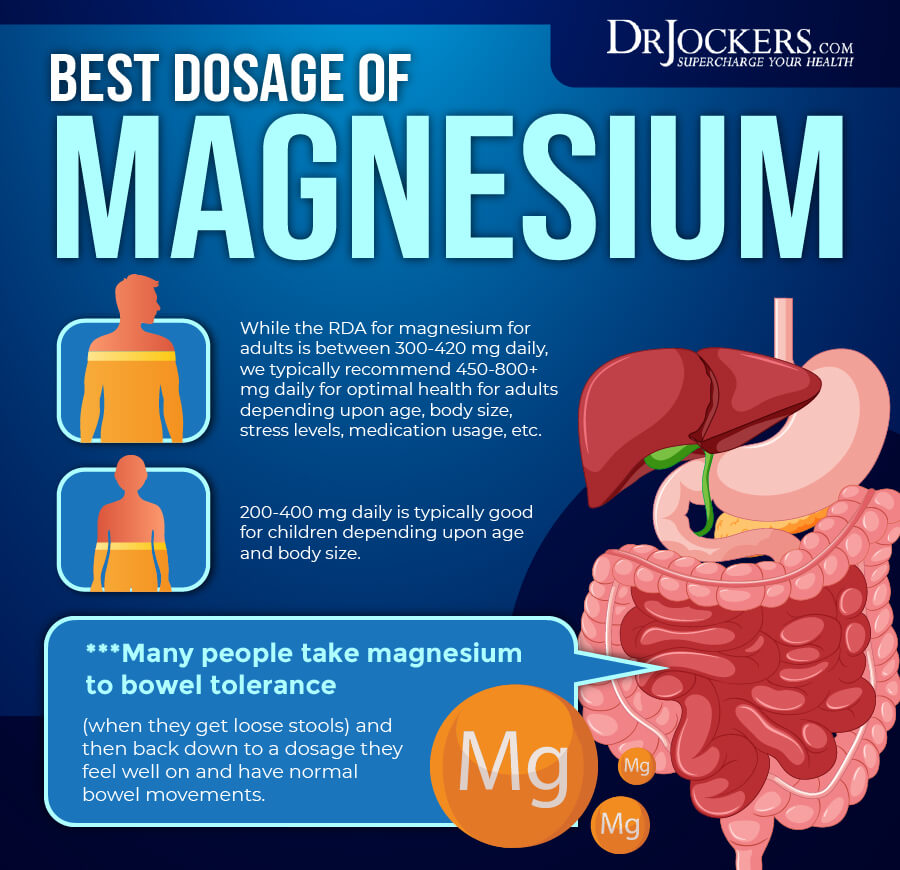
Introducing Brain Calm Magnesium
I recommend Brain Calm Magnesium. We developed Brain Calm Magnesium in order to provide the best form of magnesium to improve brain function and neuronal health. This product helps you to focus, concentrate and perform at a significantly higher level. In addition, it is fantastic for reducing anxiety while improving mood, memory, and sleep.
Brain Calm Magnesium features key Albion forms of Magnesium (malate, lysinate & glycinate chelate) as well as magnesium L-threonate the only form of magnesium proven in animal studies to cross the blood-brain barrier. Boosting the brain’s magnesium level is vital to healthy cognition, which includes long- and short-term memory, learning, stress management, and sleep.
Because many forms of magnesium have low bioavailability, we carefully selected magnesium compounds backed by research and studies to formulate Brain Calm Magnesium. This product features a unique combination of highly absorbable, organic Albion minerals—di-magnesium malate and magnesium lysinate glycinate chelate—and Magtein.
Magtein is a groundbreaking organic magnesium compound that was developed by MIT (Massachusetts Institute of Technology) researchers to support “brain power.”
Magtein is the result of 10 years of research at MIT. This novel form of magnesium is changing the way we support brain health. Unlike other brain products on the market that work via brain stimulation (often overstimulation), Magtein works via a completely different mechanism.
When brain magnesium levels are not optimal, synapse function deteriorates. By delivering magnesium into synapses, Magtein helps brain cells stay healthy without being overactivated; consequently, brain cells respond to signals with clarity and robustness.
Brain Calm Magnesium supports healthy brain magnesium levels, healthy synapse number, and function, supports memory and cognitive acceleration, supports stress management, helps sleep quality, supports healthy mood, and ensures optimal magnesium intake.
I use Brain Calm Magnesium on a daily basis myself during the daytime in order to improve my concentration and productivity. I also take some at night and have noticed much deeper and more restorative sleeping patterns. I use this product with clients that are struggling with neurodegenerative issues, mental clarity, sleep, and mood issues.
Final Thoughts
Depression is a mood disorder characterized by low energy, a feeling of sadness, hopelessness, worthlessness, low energy, and loss of interest in activities you’ve once enjoyed. Depression may affect your daily activities, sleep, studies, work, eating behaviors, exercise habits, social life, family life, and all areas of your life.
Using magnesium for depression, mental health, and brain health is often overlooked. Yet, research has shown that magnesium may benefit mental health and brain health and may improve depression. I recommend that you use my tips in this article as a guide and try magnesium for your mental health, brain health, and overall wellness.
If you want further help with your health, we offer long-distance functional health coaching programs. For further support with your health goals, just reach out and our fantastic coaches are here to support your journey.
Inflammation Crushing Ebundle
The Inflammation Crushing Ebundle is designed to help you improve your brain, liver, immune system and discover the healing strategies, foods and recipes to burn fat, reduce inflammation and Thrive in Life!
As a doctor of natural medicine, I have spent the past 20 years studying the best healing strategies and worked with hundreds of coaching clients, helping them overcome chronic health conditions and optimize their overall health.
In our Inflammation Crushing Ebundle, I have put together my very best strategies to reduce inflammation and optimize your healing potential. Take a look at what you will get inside these valuable guides below!






I bought your brain calm a few weeks ago and noticing deeper/better sleep.
I have blepharospasm and hope this helps with those spasms. Currently off the (every 3 mos) medical Botox for the first time in 21 yrs as I am learning Neuroplasticity and now think it’s an overload on my nervous system (and not a neurological I’ll Ed’s).
Also, had to retire last September and went through so much anxiety! It was awful. It’s gone now.
I hope magnesium (especially your brand) will help with these issues. Godspeed to you.
PLEASE FORWARD TO DR JOCKERS
Kay
How did you get rid of anxiety?